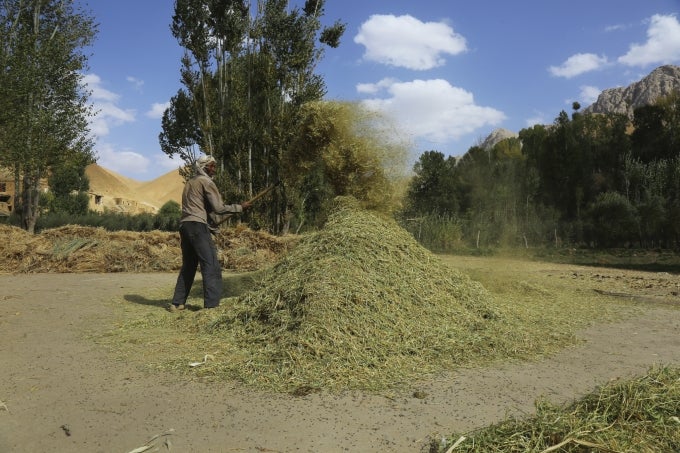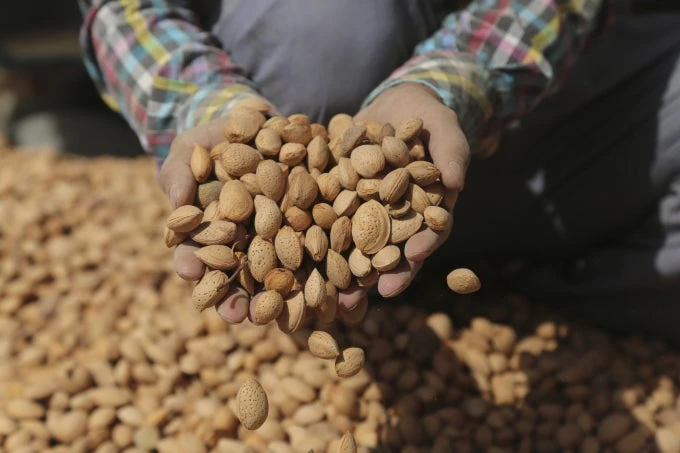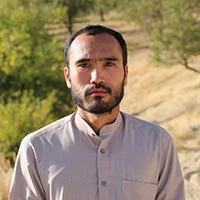
I am a messenger between local farmers and the Ministry of Agriculture, Irrigation and Livestock (MAIL). That’s my role as provincial coordinator of the National Horticulture and Livestock Project (NHLP) for Daykundi Province. I lead agricultural trainings, visit farmers, oversee all project activities in the province—there is no typical day. I’m constantly working to understand and help improve the situation of Daykundi’s farmers. I usually learn as much from my interactions with farmers as I teach—one of the favorite parts of my job is when farmers share the wisdom they’ve gained farming the land for generations.
Most of the farmers we work with are very poor, and it is easy to see the direct impact our work has in improving their livelihoods and lives. In teaching basic horticultural skills, creating sustainable livelihoods, and giving farmers the resources they need, we are helping rebuild Afghanistan from the grassroots. With support from the Afghanistan Reconstruction Trust Fund (ARTF), NHLP works to promote the adoption of improved horticulture practices and spark grassroots efforts that will be self-sustaining beyond the direct work of our projects.
Since NHLP launched in Daykundi Province in 2014, we have established 1,400 jeribs, or 280 hectares, of grapes, almonds, apples, and apricots, and we’re working to build 18 water harvesting structures to improve irrigation across the province.

Our work doesn’t come without challenges. We work all year long, and in the winter we sometimes have to walk three or four hours to reach remote farmers when the roads are blocked with snow. I remember one winter day I was feeling very ill, but visited the remote village of Chahr Asban , where I had to walk several kilometers to a farmer’s house because the roads were impassable with snow. When I reached the house, the farmer was so hospitable and our conversation so engaging, that I even forgot I had been feeling ill. It is constant interactions like this that keep me motivated and hopeful for Afghanistan’s future.
The dedication of our NHLP staff has paid off in what I believe is our greatest success—earning the trust of the local community. At first, farmers were distrustful of NHLP, but they have grown to respect and trust the program. In Chahr Asban for example, only one farmer participated during our first year of work. Working with NHLP brought him higher yields, better quality produce and higher profits. Seeing this, and understanding that NHLP is a program that aims to assist farmers, other villagers joined the program the second year, and now I have a list of villagers eager to participate.
It makes me proud to be part of a program that doesn’t just provide financial assistance to farmers, but empowers them to improve their own lives. Our aim is to improve the welfare of local people not by giving them bread or clothes because someday those material items will be gone. Instead, we work to teach the local farmers proper horticultural methods to empower them to achieve a sustainable income on their own for a better future.


Join the Conversation